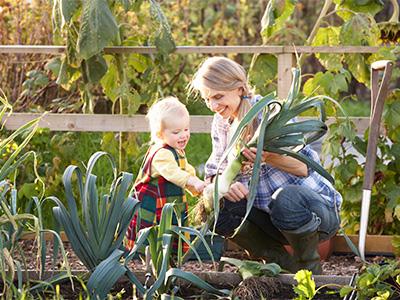Introduction
Scotland is renowned internationally for producing high quality food and drink. Much of this is exported, providing important revenue for the Scottish economy. However, the promotion of internal trade in food and drink is also important as it can help money to circulate locally and, given that most food industry employment is located in rural areas, can contribute to thriving rural economies. Moreover, greater access to and supply of locally produced food could encourage increased consumption of fresh and more environmentally sound food. Thus, an increased emphasis on local food could help to achieve the Scottish Government’s vision that by 2025 Scotland will be “a Good Food Nation, where people from every walk of life take pride and pleasure in, and benefit from, the food they produce, buy, cook, serve, and eat each day” (https://www.gov.scot/policies/food-and-drink/good-food-nation/).
However, relatively little is known about how Scotland’s food and drink enterprises work together, whether and how they form short food & drink supply networks and promote local and/or geographically-branded foods, or about how these activities are related to other business characteristics, such as pro-environmental behaviour. This research deliverable will collect and analyse data that will improve our knowledge in these areas and, in doing so, help to inform policy towards Scotland’s food and drink sectors.

Aim of Research
This research has three main aims. Firstly, it seeks to build a better understanding of the characteristics of small and medium sized food and drink enterprises in Scotland. To fulfil this it will conduct a large-scale representative survey of Scottish food and drink enterprises. The other aims will build on this survey, in the context of feedback from project stakeholders. The second aim is to build a better understanding of the characteristics and development of short food and drink supply networks in Scotland by conducting in-depth research with food and drink producers. The third aim is to co-construct, with stakeholders, proposals for policy mechanisms to support food sovereignty, and short food and drink supply networks that are built on, and can enhance, trust and sustainability.
Progress
2021 / 2022
Work in Year 6 took two main forms. First, as part of RESAS’s focus on the implications of Brexit, and building on research conducted for a SEFARI Fellowship, we undertook a qualitative evaluation of food and drink entrepreneurs’ and industry stakeholders’ views on the usefulness of, and prospects for, protected food names. This was done in the context of the recent introduction of a new regulatory framework in Britain. Scottish producers wishing to secure protected food names must now do so in the UK before applying for protection in the EU and Northern Ireland.
Interviews were conducted with thirty entrepreneurs and industry stakeholders with experience of applying for or working with protected food names. Protected food names were considered worth having and promoting, though concern was expressed that not enough emphasis is given to regional (sub-national) branding of Scottish produce. The disruptive effects of Brexit were causing concern, but the longer-term prospects for products with protected names were considered positive. Interviewees also identified products that might benefit from such protection and suggested new potential international markets for Scottish food and drink products with protected names. Interviewees advocated the provision of enhanced support for protected food name applicants and highlighted the critical infrastructure (e.g. local abattoirs) required to maximise local value-added.
Secondly, further analysis was undertaken of data from our large-scale survey of micro, small and medium-sized food and drink enterprises. This was brought into dialogue with findings from follow-up qualitative interviews with survey participants. The interview data helped us to interpret relationships found in the survey data. Analysis focused on the relationships between participants’ values – e.g. local attachment, commitments to social justice and environmental sustainability, and attitudes to provenance and product quality – their value-adding activity and choice of suppliers and customers. Perceived challenges to participants’ businesses were examined, with Covid-19 and Brexit dominant. Respondents’ reflections and survey responses concerning the future were also analysed. Three main issues emerged: sources of business finance; policy support; and views on Scotland Food & Drink. Findings from both strands of work were shared with stakeholders and policymakers.
Highlight
- Engagement with food and drink innovation in the Arctic Region: Based on a SEFARI Gateway Fellowship and Strategic Research Programme ‘Local Food’ data, SEFARI researcher published the report Food and Drink Innovation and Clustering in Scotland’s Highlands and Islands: review of opportunities for engagement with the Arctic Region.
2020 / 2021
The Principal Investigator completed work on a SEFARI Gateway Fellowship. This explored food and drink innovation and clustering in Scotland’s Highlands and Islands and reviewed potential opportunities for engagement with partners in the Arctic region. As a result of the Covid-19 pandemic, data collection from food and drink enterprises was judged not to be appropriate. Instead, the report compares and contrasts the economic and policy contexts of the Arctic region and Scotland’s Highlands and Islands, examines official data for evidence of food and drink clusters in the Highlands and Islands and, using a case study of the European Union’s protected names schemes, looks at producer engagement with geographical indications. Aspects of the values and behaviour of food and drink entrepreneurs were explored using data from the survey of food and drink enterprises conducted in Programme Year 3. The report concludes by reflecting on innovation and clustering in the food and drink sector in Scotland’s Highlands and Islands and suggests avenues for further work and engagement.
2019 / 2020
Further cleaning and analysis were conducted on the data gathered by the representative survey of food and drink enterprises in Scotland conducted in programme year 3. Preliminary findings were reported at the annual conference of the British Sociological Association in April 2019 and summary findings were reported to project stakeholders at a meeting of the Steering Group in August 2019.
In discussions with the Steering Group and other stakeholders it became clear that two of the research aims for programme years 4 and 5 required revision. This is because the proposed research, which had been designed when tendering for the Strategic Research Programme in 2015, would no longer produce findings that stakeholders considered useful. In consequence, the later stages of the research have been redesigned, in consultation with stakeholders, and will be undertaken in programme years 5 and 6.
These revisions provided an opportunity to investigate, through a SEFARI Fellowship with Highlands and Islands Enterprise, the potential for food and drink enterprises in Scotland’s Highlands and Islands to engage with the proposed Arctic Foods Innovation Cluster. This has created an opportunity to design further research into local foods and the generation of ‘place-based’ value through food and drink in a way that complements existing work in this research deliverable and enables it to engage with Scotland’s Arctic Policy Framework. This work will continue to be developed with Highlands and Islands Enterprise and, subject to approval, will be undertaken in programme years 5 and 6.
Highlights
- Securing a SEFARI Fellowship with Highlands and Islands Enterprise to build new links with policy-makers and stakeholders and provide a ‘fleet of foot’ response to their research requirements.
- High quality of engagement with stakeholders to ensure that research continues to meet their needs.
- Generation of a substantial database from which to build a better understanding of factors influencing how food and drink enterprises operate and work together to add value to produce and to their local economies.
2018 / 2019
A representative survey of 6,000 small and medium-sized food and drink enterprises in Scotland, stratified by location and standard outputs (for agricultural holdings) or turnover (other food and drink enterprises), was administered using the questionnaire developed in year two. Due to restrictions on the availability of e-mail addresses, the survey was administered by post as well as being hosted on the internet.
The survey response rate was poor (less than four per cent). After consultation it was decided that, in order to improve the statistical power of the survey’s findings, a second representative sample of medium-sized food and drink enterprises in Scotland would be required. Further negotiations were held with the holders of the databases of enterprise names and addresses and permissions secured to repeat the survey with new samples. Thus, the survey questionnaire was sent to a second non-overlapping representative sample of 6,000 small and medium-sized food and drink enterprises in Scotland, stratified in the same way as before.
Overall, 645 responses were received; a response rate of 5.38 per cent. Questionnaire data was downloaded from the internet server to an electronic database. The data contained in handwritten survey forms returned by post were entered manually into the database and checked for accuracy. The electronic data were then checked for internal consistency.
Data analysis began towards the end of year three. Preliminary results suggested that the survey will yield interesting and significant new insights.
Highlights
- Successful completion of a survey of small and medium-sized food enterprises in Scotland.
- Acceptance of conference paper outlining findings from the survey (q.v. publications, below).
2017 / 2018
The narrative review of previous research into ‘alternative’ food enterprises and short food and drink supply networks was revised after feedback from the Steering Group and then finalised. Work started on developing the review for submission to a peer-reviewed journal.
The primary focus of work this year was the further development and finalisation of the large-scale survey of small and medium-sized food and drink enterprises in Scotland. The survey questionnaire, which will provide baseline data on ‘alternative’ food enterprises and short food and drink supply networks, was drawn up and revised in response to feedback from the Steering Group. The questionnaire was then subjected to cognitive testing (piloting) and finalised.
The sampling frame for the survey was developed and finalised. It consisted of food and drink enterprises, as identified by their Integrated Administration and Control System registration (for agricultural holdings) or their Standard Industrial Classification (other food and drink enterprises). Negotiations with official repositories of population-scale databases of enterprises of both types were undertaken and successful applications to make use of them were made.
Highlight
- Large-scale survey of small and medium-sized food and drink enterprises in Scotland finalised and samples representative of the relevant populations drawn.
2016 / 2017
The aims of this deliverable necessitated the co-construction of the research agenda. An early priority, therefore, was the formation of a Steering Group to inform and scrutinise the research. The Steering Group was convened to discuss the concepts and issues that should inform the first two phases of the research: a structured review of previous work in the field; and a large-scale survey of small and medium-sized food and drink enterprises in Scotland.
Recent research into ‘alternative’ food enterprises and short food and drink supply networks was subject to a narrative review. Preliminary findings from this review were presented to and discussed with the Steering Group.
That review, and the Steering Group's responses to it, informed the design of the second phase of the research: the large-scale survey of small and medium-sized food and drink enterprises in Scotland. Work commenced on the design of the survey questionnaire. A draft sampling frame was developed and bodies holding appropriate lists of the names and addresses of target participants were identified and approached.
Highlights
- Formation of a Steering Group to co-construct and oversee the research.
- Preliminary draft of narrative review of recent research into ‘alternative’ food enterprises and short food and drink supply networks.
Future Activities
Work in this deliverable links directly into project RI-B5-10, costs and opportunities for higher value Scottish food and drink products, in the 2022-27 RESAS Strategic Research Programme. This new research will begin with a systematic review of studies of higher value food and drink products. It will conduct choice experiments, based on a UK survey, on consumers’ willingness to pay for higher value Scottish food and drink products. The research will focus on five product groups: Specially Selected Pork; organic products; other meat products; cheese products; game and sea fish. For each group, we will:
- Extraction product data from Kantar Worldpanel
- Interview key informants to contextualise and supplement Kantar Worldpanel data. Interviewees will also be asked whether they would be willing for their enterprise to feature as a case study (see below).
- Estimate product revenues and simulate profits. As data will be extracted from Kantar Worldpanel the effect of a number of variables will be explored: whether the products are branded or private labels, premium category versus standard etc. Statistical analysis will be undertaken on factors that affect the margins obtained.
- Analyse trade-offs between quality and processing. The methods used will depend on the size of the market and the availability of quantitative information.
- Co-develop, with stakeholders, a toolkit and case study (or case studies) that will be made available to producers interested in producing higher value food and drink products for domestic, UK and international markets, and put forward, as appropriate, policy proposals.
Selected Outputs
David Watts and John McKenzie (2019) ‘“Alternative” food enterprises as a Weberian ideal-type?
Preliminary findings from a survey of food and drink enterprises in Scotland’. Paper presented at the Annual Conference of the British Sociological Association.
David Watts and John McKenzie (2018) ‘Cultural Political Economy and Ideal Types: a preliminary dialogue applied to food networks’. Working paper.
“Report on the potential for the Highlands and Islands to be involved in an Arctic Foods Innovation Cluster” prepared by David Watts for SEFARI and Highlands and Islands Enterprise.
Report, Views of micro, small, and medium-sized food and drink enterprises on ‘local’ food in Scotland, sent to stakeholders for comment.
Report, Protected food names in Scotland. A qualitative review, sent to stakeholders for comment.
Report, Food and Drink Innovation and Clustering in Scotland’s Highlands and Islands: review of opportunities for engagement with the Arctic Region, sent to stakeholders for comment.



